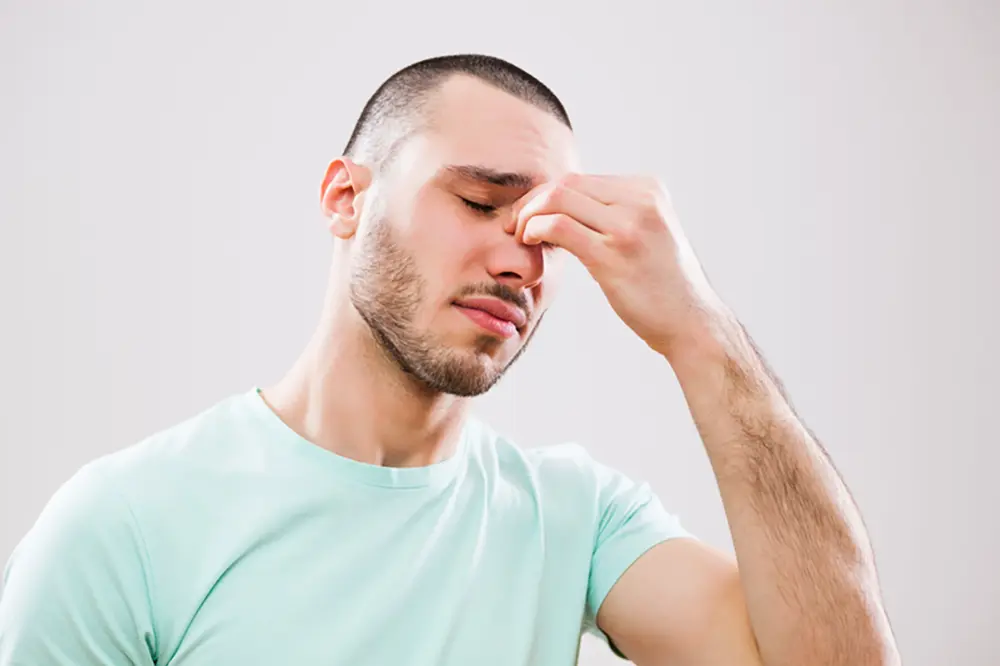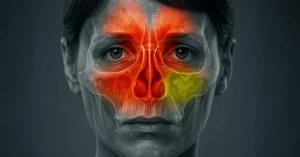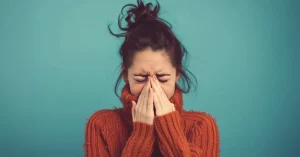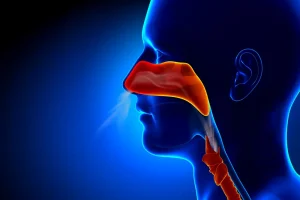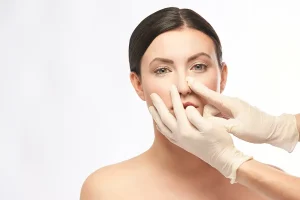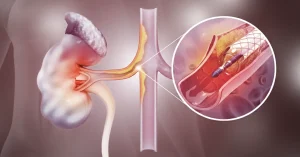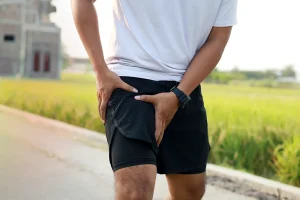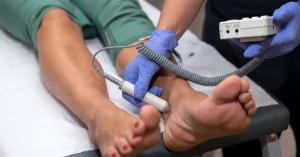What Are Nasal Polyps?
Nasal polyps are benign, non-cancerous growths that form in the nasal lining and sinuses. They are often associated with chronic inflammation and can affect breathing, sleep, and quality of life.
Why Do Nasal Polyps Occur?
Nasal polyps can occur due to genetic factors, chronic inflammation of the nasal passages and sinuses, allergies, and recurrent infections. People with asthma or aspirin sensitivity are at higher risk.
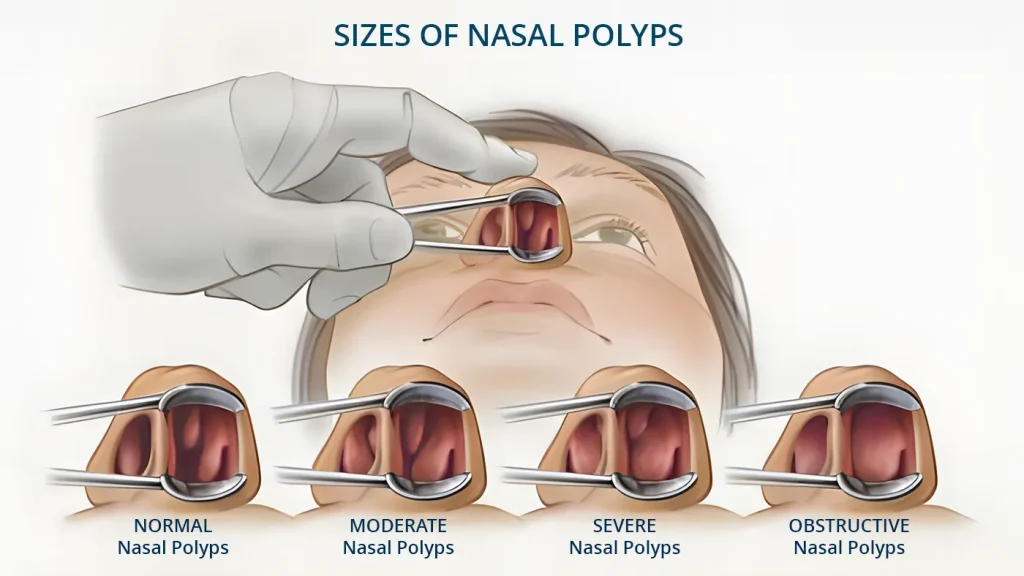
Symptoms of Nasal Polyps
Small polyps may go unnoticed, but larger ones can cause:
- Breathing problems;
- Loss of smell and taste;
- Stuffy nose;
- Sneezing;
- Barking cough;
- Foul-smelling mucus discharge;
- Snoring;
- Facial pressure or headaches;
- Facial pain;
- Fatigue;
- Dark circles under the eyes;
- Bleeding (in advanced cases);
- Recurrent infections.
Polyps in Adults
Nasal polyps mainly affect young adults with asthma, sinusitis, or allergies. They rarely occur in older adults. Medical consultation is advised when symptoms develop.
How Can Nasal Polyps Be Diagnosed in Adults?
Diagnosis involves a detailed history and ENT examination. Additional investigations include:
- Nasal endoscopy – thin, flexible scope with a camera;
- CT scan – shows number and location of polyps;
- Allergy tests – identify allergic triggers;
- Cystic fibrosis tests – when suspected;
- Polyp biopsy – if appearance is suspicious or resistant to treatment.
What Is Nasal Polyposis?
Nasal polyposis is the presence of multiple polyps, often linked to:
- Allergic rhinitis;
- Bronchial asthma;
- Cystic fibrosis;
- Otitis;
- Acute laryngitis;
- Chronic rhinosinusitis;
- Churg-Strauss syndrome;
- Young syndrome;
- Aspirin intolerance;
- Other non-allergic and allergic conditions.
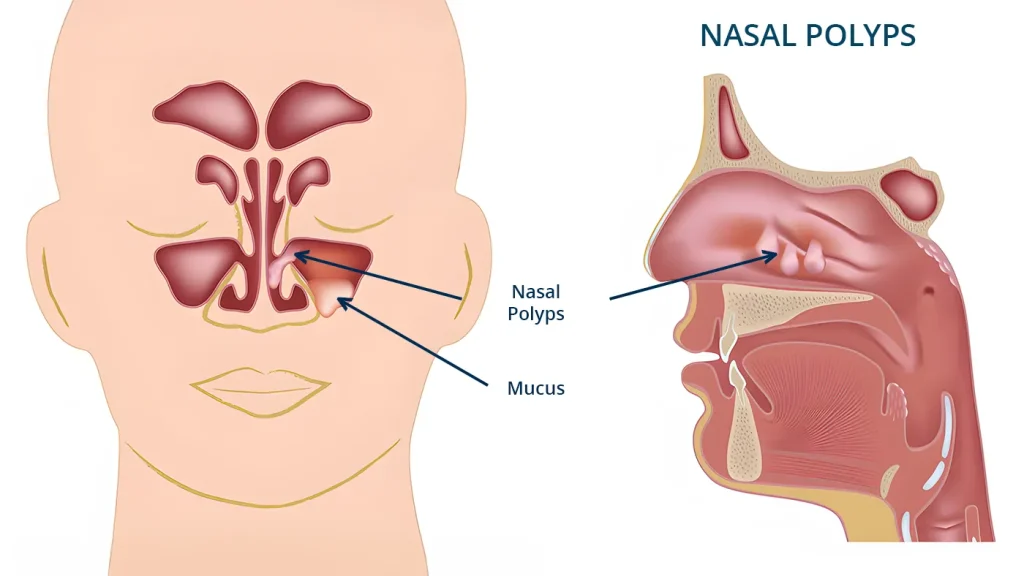
Treatment of Nasal Polyps in Adults
Pills for Nasal Polyps
Depending on severity, treatment may include antibiotics, corticosteroids, antihistamines, or diuretics. Surgery is needed if medication fails.
Nasal Polyps Spray
Corticosteroid sprays (e.g., fluticasone, mometasone) reduce inflammation and shrink polyps. Saline sprays help clear passages, and antihistamines (e.g., azelastine) relieve allergy symptoms.
Natural and Alternative Remedies
Steam inhalation, saline rinses, and supplements such as turmeric or ginger may help reduce inflammation.
Nasal Polyp Surgery
Polyps can be removed via traditional or endoscopic surgery.
What Complications Can Arise?
- Airway obstruction;
- Chronic sinusitis;
- Loss of smell and taste;
- Recurrent infections;
- Facial pain and headaches;
- Sleep apnea;
- Dental and jaw problems;
- Exacerbation of asthma and respiratory conditions.
Prevention
- Regular allergy/asthma medication;
- Avoid allergens (dust, pollen, mold);
- Daily saline rinses;
- Quit smoking and avoid irritants;
- Reduce pollution exposure;
- Treat respiratory infections promptly;
- Vaccinate against flu and pneumonia;
- Maintain a healthy diet and hydration.
Polyps in Children
Common in children with cystic fibrosis, especially between ages 2–5. Poorly treated colds increase risk.
Diagnosing Nasal Polyps in Children
- ENT consultation with nasal endoscopy;
- CT scan (if needed);
- Allergy testing.
Treatment of Nasal Polyps in Children
- Nasal corticosteroid sprays;
- Short courses of oral corticosteroids in severe cases;
- Antibiotics for bacterial infection;
- Endoscopic sinus surgery if unresponsive to medication.
Preventing Polyps in Children
- Control allergies and inflammation;
- Regular saline sprays;
- Avoid secondhand smoke and irritants.
Conclusion
At Venart Clinic Cluj, ENT specialists perform minimally invasive surgery for nasal polyps with excellent outcomes.
In just 30 minutes, patients can regain normal breathing and relief from symptoms. Schedule a consultation with us today and see how we can help.
Medical consultant: Dr. Iuliu Cătană
References:
Frequently Asked Questions
Can polyps be treated without surgery?
Yes, with corticosteroid sprays, allergy treatment, and saline rinses.
Can nasal polyps recur?
Yes, but recurrence can be managed with proper treatment and prevention.
How long does surgery take?
30–60 minutes, depending on size and number of polyps.
When should surgery be performed?
Any time, but when not urgent, spring or early summer is recommended.What should be avoided after surgery?
Avoid long-distance plane or car travel for two weeks.

